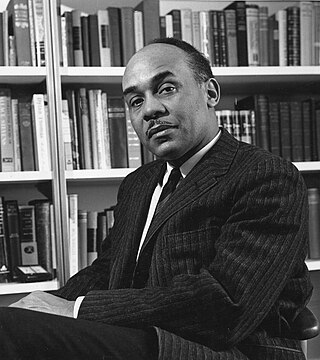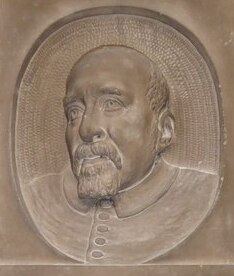Related Research Articles

Ralph Waldo Ellison was an American writer, literary critic, and scholar best known for his novel Invisible Man, which won the National Book Award in 1953.

Robert Recorde was a Welsh physician and mathematician. He invented the equals sign (=) and also introduced the pre-existing plus (+) and minus (−) signs to English speakers in 1557.

Sir William Grey Ellison-Macartney, was an Irish-born British politician, who also served as the Governor of the Australian states of Tasmania and Western Australia.

The Very Revd. John Herbert Severn Wild (1904–1992) was Dean of Durham and Master of University College, University of Oxford.
John Browne (1687–1764) was an Oxford academic and administrator. He was Fellow and Master of University College, Oxford, and also served as vice-chancellor of Oxford University.

Richard Clayton was a Canon, Oxford academic and administrator. He was Master of University College, Oxford, from 1665 until his death in 1676.
Thomas Walker was an Oxford academic and administrator. He was twice Master of University College, Oxford.
James Dugdale was an Oxford academic and administrator. He was Fellow and Master of University College, Oxford.
John Martyn, also known as John Marten, was a Master of University College, Oxford, England.
John Crayford was a Master of both Clare College, Cambridge, and University College, Oxford, England. Martyn was unusual in being a Master of colleges at both the universities of Oxford and Cambridge. He was the only Master of University College to also have been a Master at a Cambridge college.
William Gregford was a Master of University College, Oxford, England.
John Roxborough was a Master of University College, Oxford, England.
Ralph Hamsterley was a Master of University College, Oxford, England.
Richard Salveyn was a Master of University College, Oxford, England.
Anthony Salveyn was a Master of University College, Oxford, England.
Salveyn is a surname. Notable people with the surname include:
George Ellison may refer to:
John Castell was a Master of University College, Oxford, and later a Chancellor of the University of Oxford. Castell was a Fellow of University College. He became Master of the College circa 1408. He also held preferment in the Diocese of York with his mastership. In 1411, a sentence of excommunication was issued by the Archbishop of Canterbury, Thomas Arundel, against Castell, Fellows at the College — Robert Burton, John Hamerton, and Adam Redyford — and the College as a whole, due to Lollardy leanings. An appeal to the Pope against the excommunication was made by the bursar of the College, John Ryvell. Castell survived the controversy and continued as Master until 1420.

Zelia N. Breaux was an American music instructor and musician who played the trumpet, violin and piano. She organized the first music department at Langston University in Oklahoma and the school's first orchestra. As the Supervisor of Music for the segregated African American schools in Oklahoma City, Breaux organized bands, choral groups and orchestras, establishing a music teacher in each school in the district. She had a wide influence on many musicians including Charlie Christian and Jimmy Rushing, as well as novelist Ralph Ellison. Breaux was the first woman president of the Oklahoma Association of Negro Teachers and was posthumously inducted into the Oklahoma YWCA Hall of Fame, Oklahoma Women's Hall of Fame and the Oklahoma Bandmasters Association Hall of Fame. The Oklahoma City/County Historical Society made a posthumous presentation of its Pathmaker Award to Breaux in 2017.
References
- 1 2 Carr, William, University College , Routledge, 1998. ISBN 978-0-415-18632-2. Chapter V, The Sixteenth Century (pages 74–94).
- 1 2 Darwall-Smith, Robin, A History of University College, Oxford. Oxford University Press, 2008. ISBN 978-0-19-928429-0. Pages 98, 100–103.